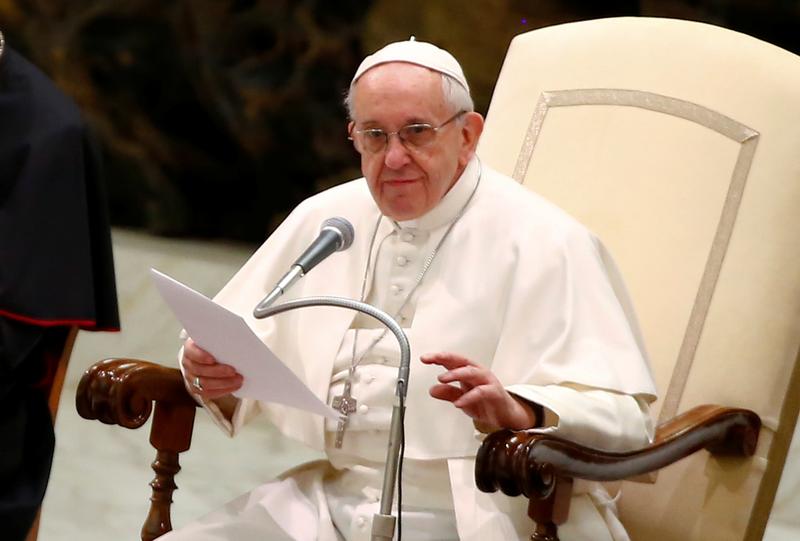Burma‘s most senior Catholic prelate has urged Pope Francis to avoid using the term ‘Rohingya’ during a visit this month, when he is expected to raise the humanitarian crisis faced by the Muslim minority after a Burmese army offensive in August.
The pope is set to visit largely Buddhist Burma from 27- 30 November, before going to Bangladesh, a predominantly Muslim neighbour where more than 600,000 Rohingya have fled to take shelter in refugee camps.
In the first visit by a pope to Burma, Francis will meet Aung San Suu Kyi, the Nobel peace laureate who leads a civilian administration that is less than two years old, the generals it has to share power with, as well as leading Buddhist monks.
Cardinal Charles Maung Bo told Reuters the pope would raise the need to provide assistance to the Muslim minority, saying, “These are people who are suffering and these are the people in need of help now.”
Francis has used the term Rohingya when he has spoken about their suffering in the recent past. But Suu Kyi has asked foreign leaders not to use the term ‘Rohingya’, because in her view it is inflammatory.
Bo, appointed by Pope Francis in 2015 as Burma‘s first and only cardinal, said church leaders in the country had advised him to sidestep the divisive issue of the name.
“We have asked him at least to refrain from using the word ‘Rohingya’ because this word is very much contested and not acceptable by the military, nor the government, nor the people in Myanmar [Burma],” Bo said in an interview in Yangon.
It was unclear if the pope would heed the advice, Bo added, but if he did so, it would not be to politicise the issue or endorse the Rohingya right to Burmese citizenship, “but he just wants to identify this particular group who call themselves ‘Rohingya’.”
Many people in Burma regard the largely stateless Rohingya as illegal immigrants from Bangladesh, and they are excluded from the 135 “national races” recognised by law.
Regardless of Burma‘s sensitivities, however, the United Nations and United States continue to call them Rohingya, upholding their right to self-identify.
Importance of dialogue
Francis will highlight the importance of resolving the refugee crisis through dialogue between Burma and Bangladesh and with the help of the international community, Bo added.
Burma has said Rohingya who can prove they were resident would be allowed to return, but the two countries have still to agree how the repatriation should be carried out.
“These are the people who do not enjoy the citizenship and are somewhat unwanted in both countries,” said Bo, referring to Burma and Bangladesh.
“They are also human beings. They have a human face and they also need human dignity, so eliminating or killing any one of them, that’s not justified … ,” Bo said, referring to the group as “our brothers and sisters”.
Francis will celebrate a mass in Yangon that is expected to draw around 200,000 people, Bo said, adding that Buddhists, Muslims, and those of other faiths were welcome to attend.
Burma has about 700,000 Roman Catholics, said Bo, from among a population of more than 51 million.
[related]
The United Nations has denounced the violence in Burma‘s northwest over the past 10 weeks as a textbook example of ethnic cleansing, a charge Suu Kyi’s administration has denied, while saying accusations of rights abuses should be investigated.
Burma‘s military says its counter-insurgency clearance operation was provoked by Rohingya militants’ attacks on about 30 security posts on 25 August.
In the following days, the pope spoke about “the persecution of our Rohingya brothers and sisters” and asked Catholics to pray for them, adding that they should be given “their full rights”.



